Denmark Bans Discharge of Scrubber Water
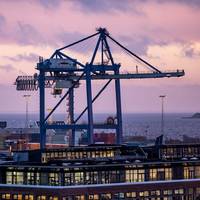
The discharge of scrubber water from ships out to 22km (12 nautical miles) from the Danish coasts will be prohibited by law. The ban will come into effect on July 1, 2025, for ships with scrubbers in open operation, where the wash water is discharged into the sea. For ships with scrubbers in closed operation, the ban on water discharge will take effect on July 1, 2029.The Ministry of Environment has stated that scrubber water has contributed to excessive levels of a number of heavy metals and tar substances such as lead, cadmium, anthracene and benz(a)pyrene in the marine environment.
World's Largest Cruise Ship Sets Sail, Bringing Concerns About Methane Emissions
The world's largest cruise ship is set for its maiden voyage on Saturday, but environmental groups are concerned that the liquefied natural gas-powered vessel - and other giant cruise liners to follow - will leak harmful methane into the atmosphere.Royal Caribbean International's Icon of the Seas sets sail from Miami with capacity for 8,000 passengers across 20 decks, taking advantage of the surging popularity of cruises.The ship is built to run on liquefied natural gas (LNG), which burns more cleanly than traditional marine fuel but poses greater risks for methane emissions.
MARAD to Study Low Carbon Fuels on the Great Lakes
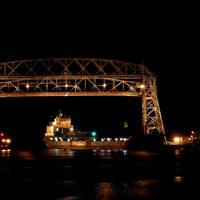
The U.S. Department of Transportation's Maritime Administration (MARAD) announced the launch of a study exploring low carbon options for shipping on the Great LakesThe research group will be led by the International Council on Clean Transportation (ICCT), in partnership with the American Bureau of Shipping (ABS) and the Conference of Great Lakes and St. Lawrence Governors & Premiers (GSGP).Over a period of 16 months, researchers will assess alternative fuels and power options in the region and will develop a detailed profile of Great Lakes fleets, ports and fueling infrastructure.
Shipowners’ Low Carbon Fuel Options Gain Speed
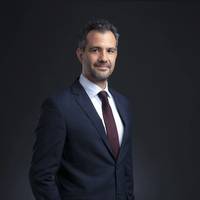
In the next decade, we’ll see more accelerated change in shipping fuels than we’ve seen in the last century. What does this heightened diversity mean for shipowners? They must be nimbler than ever – a shift that requires work. It means greening supply chains, bolstering energy efficiency, nurturing more partnerships, streamlining costs, and becoming adept at green finance (frequent change can be expensive to start with). All will help shipowners’ fuel portfolios adapt to the inevitable…
Draft U.N. Plan on Ship Fuel Ban in Arctic Seen as Lax
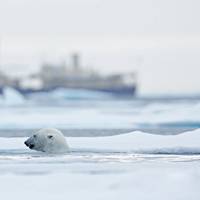
Draft U.N. proposals to ban the use and transport of heavy fuel oil by ships in the Arctic contain waivers that will allow many vessels to keep sailing without enough regulatory control over their emissions, a study released on Thursday found.Antarctic waters are protected by stringent regulations, including a ban on heavy oil fuel (HFO) adopted in 2011, even though no cargo moves through the turbulent southern waters. For the Arctic, the rules are looser.Environmentalists say HFO produces higher emissions of harmful pollutants, including sulphur oxide, nitrogen oxides, and black carbon.
Shipping's Share of Global Carbon Emissions Increases
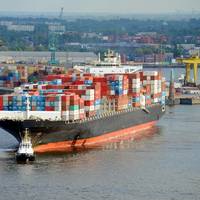
Carbon emissions from shipping rose in the six-year period to 2018 and accounted for 2.89% of the world’s CO2, a study released on Tuesday showed, amid growing pressure on the industry to bring levels down.About 90% of world trade is transported by sea and UN shipping agency - the IMO - aims to reduce the industry’s overall greenhouse gas emissions by 50% from 2008 levels by 2050.The report - the fourth in a series commissioned by the IMO - said shipping's share of global CO2 emissions increased to 2.89% in 2018 from 2.76% in 2012, when the last study period ended.CO2 emissions grew to 1,056 m
Rewrite the Rules: The Path to Zero Emissions
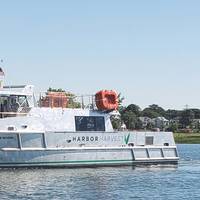
With social media updates and conference agendas addressing the subjects of climate change, emissions reductions and alternative fuels, it’s a wonder we are not climbing the Himalayans in search of the Jedi Master that will provide us with the magic potion. Yoda’s blessing with a calming breath, “You have chosen wisely.”Government emissions intervention started with a move to reduce energy and fuel consumption measured in greenhouse gas (GHG), at a time when the world and our politicians spoke about global warming.
LNG and Shipping Decarbonisation Target
Though liquefied natural gas (LNG) could help the shipping industry to reach its decarbonization target, it could wreck the climate, finds a study.According to a research by the International Council on Clean Transportation (ICCT), switching vessels to the LNG fuel would only serve to worsen shipping’s climate impact due to previously underestimated leakage of the climate super-pollutant methane.More and more ships, including container ships and cruise ships, are being built to run on liquefied natural gas (LNG), which emits approximately 25% less carbon dioxide (CO2) than conventional marine fuels in providing the same amount of propulsion power.However…
IMO Sets Stricter Emissions Targets for New Ships
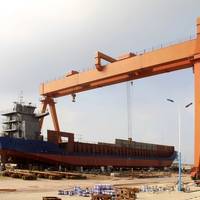
The International Maritime Organization (IMO) on Friday agreed stricter energy efficiency targets for certain types of ships in an effort to speed up action to cut the sector's emissions.The IMO's Marine Environment Protection Committee has been meeting in London this week to discuss tougher rules on sulphur emissions and other measures towards meeting a long-term goal of cutting greenhouse gas emissions by 50% from 2008 levels by 2050.The international shipping sector accounts for about 2% of global carbon dioxide (CO2) emissions, the main greenhouse gas blamed for global warming.Under its En
New Zealand Intros Fully-Electric Ferry
New Zeland's multi-disciplined electrotechnology company McKay announced that they are to develop and implement the country's first plug-in fully electrical ferry along SSC Marine, which is planned to be built in Wellington.According to the company statement, the ferry is the first of its kind in New Zealand and also in the entire southern hemisphere.The project will consist of a modern, composite catamaran ferry using a McKay designed and installed power and energy management, energy storage system and electric propulsion systems. Project delivery is expected in the 4th quarter of 2019.“The good news is electrotechnology is advancing and innovating, bringing with it sustainable solutions for the world’s sea-transport fleets.
Maritime's Push Toward "Net Zero Carbon"
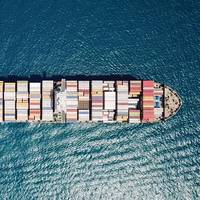
IMO’s 2050 deadline to reduce GHG emissions 50% from 2008 levels has set off a gold rush to develop Zero Emissions SolutionsClimate change is the biggest issue facing [all aspects of] the maritime industry, said Kitak Lim, IMO secretary general, in an interview earlier this year with Maritime Reporter & Engineering News. He predicted that shipping could experience as much change in the next 10 to 20 years as it has in the last 100 years, as the industry races to meet a number of challenges…
Cat’s C280 Engines Meet EPA Tier 4, IMO Tier III
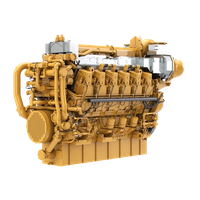
Caterpillar Marine now offers its Cat C280 medium-speed diesel engines for U.S. Environmental Protection Agency (EPA) Tier 4 and International Maritime Organization (IMO) Tier III service. The EPA Tier 4 standards applied to all new U.S. flagged vessels starting in January 2014 and IMO III standards will apply to all new vessels entering IMO NOx Emissions Control Areas (NECA) starting in January 2016. The C280 engines are available in eight-, 12- and 16-cylinder models spanning a power range from 2…
Paris Talks to Target Shipping Emissions
194 nations last week agreed at the Geneva Climate Change Talks to a negotiating text which could see international emissions caps placed on the shipping industry by 2020. Shipping is a large and growing source of the greenhouse gas emissions that are causing climate change. More than 190 countries began working on in Geneva last week with the idea of imposing carbon pollution targets on shipping industry has appeared in the lengthy negotiating text. An additional proposal in the Paris negotiating text would “encourage” international shipping bodies to develop a levy scheme to help countries adapt to climate change. The European Union wants a global approach taken to reducing emissions from international shipping.
Arctic Shipping Emissions to Increase by 600% in Ten Years
The emissions from Arctic shipping traffic could rise 150-600 percent by 2025, the environmental group Friends of the Earth reports. As global warming intensifies and Arctic sea ice melts, marine vessel traffic is expected to increase and amplify the levels of harmful pollution emitted into the atmosphere, a new report by the International Council on Clean Transportation says. These pollutants include carbon dioxide, nitrogen oxides, sulfur oxides, and particulate matter, including black carbon. The ICCT report outlines a number of options to mitigate harm from shipping emissions in the U.S. Arctic. The major policies that will reduce emissions from Arctic shipping activity are requiring cleaner marine fuels and expanding existing emission control areas for marine vessels.
New SNAME CD: Impact of EPA & IMO Regulations
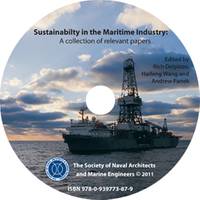
Sustainability in the Maritime Industry is now available from the Society of Naval Architects and Marine Engineers (SNAME). The new CD, a collection of relevant technical papers, focuses on logical solutions to the strict emission control and environmental regulations of the (US) Environmental Protection Agency (EPA) and the International Maritime Organization (IMO). Edited by SNAME members Rich Delpizzo (Manager of Government Operations, American Bureau of Shipping), Haifeng Wang (Policy Analyst…
Climate Change Symposium Technical Program
SNAME President Keith Michel and Malcolm MacKinnon III, Chairman of the Marine Board, released the Notice of Meeting and Technical Program Schedule for the symposium on Climate Change. Climate Change and Ships, Increasing Energy Efficiency Symposium will be held February 16 and 17 at the Maritime Institute of Technology and Graduate Studies (MITAGS) in Linthicum, Md. The symposium is organized around three themes: (1) the Energy Efficiency Design Index for new ships now under development at the IMO, (2) the cost effectiveness of market-based mechanisms applied to shipping, and, (3) technical and operational measures to increase energy efficiency on ships. Each session will consist of a series of technical presentations followed by a panel discussion with audience participation.
SNAME Focused Panel Sessions, 2009 Meeting
The focused panel sessions at the Society of Naval Architects and Engineers (SNAME) Annual Meeting and Expo (October 21-23 at the Rhode Island Convention Center in Providence, Rhode Island) will feature four timely topics: Electric Ships; Renewable Energy from the Oceans; Unmanned and Autonomous Ships of the Future; and Ship Efficiency in the Greenhouse Gas Era. Each two-hour panel session will be chaired and moderated by experienced SNAME members. Each session will have three leading experts who will make thirty minute presentations on their area of expertise, followed by a moderated thirty minute discussion period which will include questions and answers from the audience.






